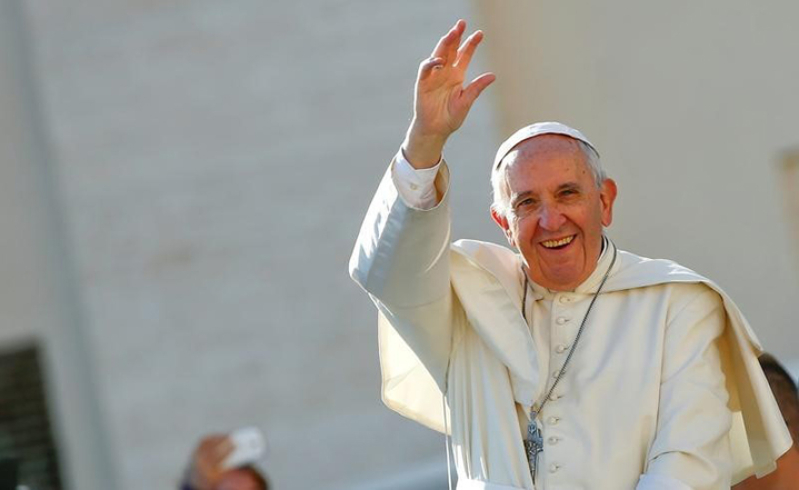
Pope Francis has sparked a debate after saying he wants to make a change to the Lord's Prayer, arguing that the current form wrongly implies that God can lead humans "into temptation."
The Pontiff said the Roman Catholic Church should adopt a better translation of the phrase in the Italian version of the Lord's Prayer, as the current phrasing, which is the same in English and many other languages, is theologically incorrect.
"That is not a good translation, because it speaks of a God who induces temptation," the pope said in a television interview on Wednesday night.
"The French have changed the text with a translation that says 'do not let me fall into temptation.' I am the one who falls, but it isn't He who throws me into temptation and then looks on to see how I fell. A father does not do this; a father helps us get up immediately."
"The one who leads you into temptation is Satan," he added, "that's Satan's role."
Instead, the prayer should adopt a translation similar to, "when Satan leads me into temptation, give me a hand," Francis said.
The Lord's Prayer originates in Matthew 6:9-13. The key verse in question is 13, which, in the NIV translation, reads: "And lead us not into temptation, but deliver us from the evil one." It is a translation from the Latin vulgate, which was translated from ancient Greek by Saint Jerome in the late fourth century.
The Rev Ian Paul, an Anglican theologian, told The Guardian that changing the phrasing of the Lord's Prayer would make traditionalists nervous.
"The word in question is peirasmos [from New Testament Greek] which means both to tempt and to be tested. So on one level the pope has a point. But he's also stepping into a theological debate about the nature of evil," he said. "In terms of church culture, people learn this prayer by heart as children. If you tweak the translation, you risk disrupting the pattern of communal prayer. You fiddle with it at your peril."
M J C Warren, Lecturer in Biblical and Religious Studies at the University of Sheffield, said there are "two major issues" with Pope Francis's call to change the Lord's Prayer.
"In attempting to remove any implication that God has some hand in evil, the Pope not only overlooks the many biblical examples where God works with Satan to test his followers and even his own son, but he also ignores the plain meaning of the Gospel text," she said. "A more consistent understanding of God actually requires that wording, begging God not to lead a worshipper into temptation."
Others, however, said the suggested modification makes sense, though it's unlikely to actually change.
"I'm not aware of any plans to change the translation in the English-speaking world but you can certainly see the logic of doing so," said Austen Ivereigh, the pope's biographer.
"It is not God who tempts us into sin but the enemy of human nature. But tradition and familiarity are also important factors in weighing up any decision to modify a translation."







